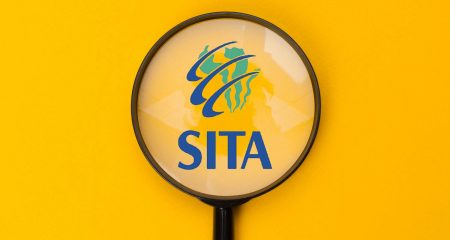
The State Information Technology Agency (Sita) has referred three high-profile cases of alleged corruption to the Special Commercial Crimes Unit for prosecution and dismissed one official for alleged corruption over the past few months as part of an anti-corruption drive.
That’s according to Moses Mtimunye (pictured), acting CEO and chief of strategic services at Sita, who was delivering a keynote address on the opening morning of GovTech 2009 in Durban.
GovTech is an annual conference that brings together Sita, its government clients and the information and communications technology (ICT) industry to discuss issues of mutual interest.
The amount of money that Sita spends procuring ICT goods and services on behalf of its clients — more than R10bn since 2003 — is a lucrative target for “shenanigans” by government officials, Sita employees and ICT companies, admits Mtimunye. From its inception, the organisation has been under fire for weaknesses in its procurement processes as well as corrupt activities.
However, Sita itself has yet to confront the accusations of corruption head-on, instead speaking about it in “hush-hush” tones with government officials and ICT vendors, he adds. The agency can no longer afford to ignore the allegations of corruption since they have done serious harm to its reputation.
As its first step, Sita’s office of strategic services embarked on an analysis of media reports about alleged corrupt activities at the agency and conducted internal research to understand how many complaints of corruption the agency had received.
The results of the media analysis showed that many of the allegations of corruption in the media come from disgruntled vendors “crying wolf,” he says. “The media is reporting from the losing bidder’s point of view.”
However, Mtimunye says that Sita has taken firm action when it has uncovered evidence of corrupt activities by its officials. Sita embarked on 32 disciplinary actions against staff members in its last financial year, when it received 73 complaints of alleged corruption. It has investigated 230 cases of corruption since 2004.
Mtimunye says that government officials that work for Sita’s client departments and the ICT vendors it buys goods and services from are often framed as innocent victims in corrupt activities. But to stamp out corruption, they too need to need to work with Sita to bring corrupt officials to book. The blame for corruption needs to be apportioned correctly since “it takes two to tango,” says Mtimunye.
“The ICT industry has been playing victim far too long,” Mtimunye says, calling on industry bodies and associations to expel those vendors involved in corrupt activities.
For its part, Sita has embarked on a drive to re-educate its employees about its existing regulations and to enforce them more strictly. It has also tightened up some regulations, such as its policy on gifts made to its employees by vendors, in a bid to close loopholes for corruption.
In an electronic survey after Mtimunye’s speech, 80% of the audience agreed that ICT acquisition and corruption are interlinked and nearly 80% agreed or strongly agreed that public sector ICT acquisition is littered with corruption allegations.
Mtimunye says that industry representatives, Sita employees and government officials that believe they have evidence of corrupt activities at Sita can report them to the Sita hotline on 0800 204 572. Should they not have confidence in Sita’s impartiality or willingness to act, they could also refer their complaints to an alternative organ such as the department of public service & administration. — Lance Harris, TechCentral



